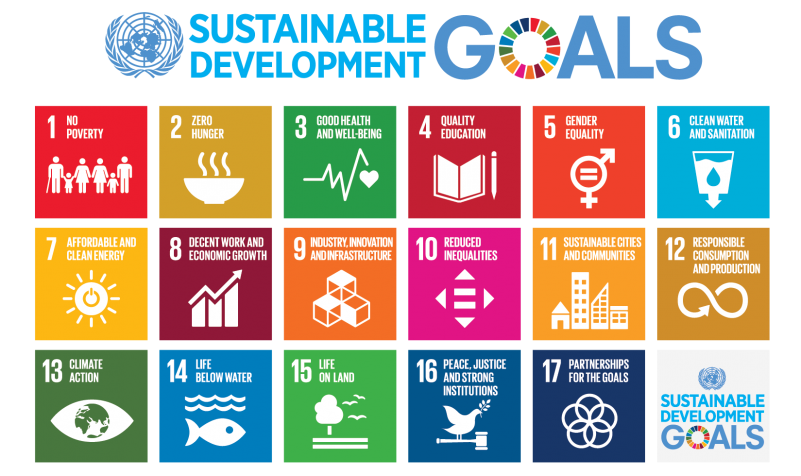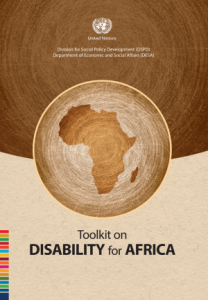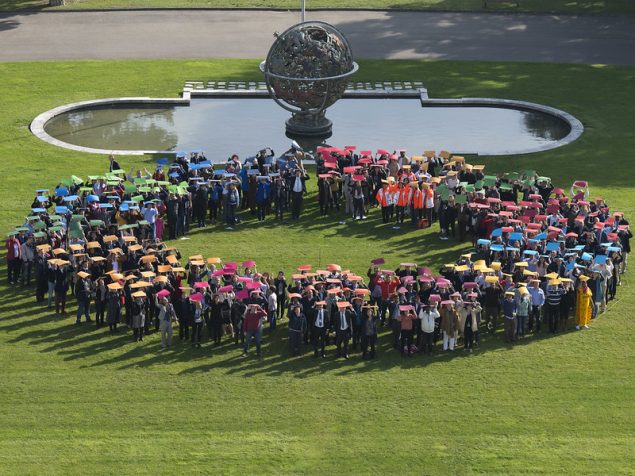- UN Flagship Report on Disability and Sustainable Development Goals (2018)
- #Envision2030: 17 goals to transform the world for persons with disabilities
Imagine the world in 2030, fully inclusive of persons with disabilities!
- Infographic Disability-inclusive SDGs (JPG) (Image that graphically shows disability-inclusion in the SDGs)
- Transforming our world: The 2030 Agenda for sustainable Development (A/RES/70/1)
- Sustainable Development Goals (SDGs) UN website
- Monitoring and Evaluation of Disability-Inclusive Development: Data and Statistics
Disability-related events, statements and media
- 2030 Agenda Introductory Toolkit and Comprehensive Guide for persons with disabilities (IDA/IDDC resource)
- Agenda 2030 and the SDGs (PDF, easy-read version)
- Launch of new UN postage stamp on disability and development (Chinese) (see also Statement of the Secretary-General and UNPA website for Disability and Development Custom Stamp Sheet)
- Statement by Vladimir Cuk at Summit (IDA)
- Statement by Mosharraf Hossain at Summit (ADD International UK)
- IDA/IDDC – Press Release: Today, we celebrate
- Handicap International – Press Relelease
- Leonard Cheshire Disability – Press Release
During the 2012 United Nations Conference on Sustainable Development (Rio+20, Member States agreed to launch a process to develop a set of sustainable development goals (SDGs) to succeed the Millennium Development Goals (MDGs), whose achievement period concludes in 2015. The SDGs are to address all three dimensions of sustainable development (environmental, economic and social) and be coherent with and integrated into the United Nations global development agenda beyond 2015. The envisaged SDGs have a time horizon of 2015 to 2030.
-
Goal 4 on inclusive and equitable quality education and promotion of life-long learning opportunities for all focuses on eliminating gender disparities in education and ensuring equal access to all levels of education and vocational training for the vulnerable, including persons with disabilities. In addition, the proposal calls for building and upgrading education facilities that are child, disability and gender sensitive and also provide safe, non-violent, inclusive and effective learning environments for all.
-
In Goal 8: to promote sustained, inclusive and sustainable economic growth, full and productive employment and decent work for all, the international community aims to achieve full and productive employment and decent work for all women and men, including for persons with disabilities, and equal pay for work of equal value.
-
Closely linked is Goal 10, which strives to reduce inequality within and among countries by empowering and promoting the social, economic and political inclusion of all, including persons with disabilities.
-
Goal 11 would work to make cities and human settlements inclusive, safe and sustainable. To realize this goal, Member States are called upon to provide access to safe, affordable, accessible and sustainable transport systems for all, improving road safety, notably by expanding public transport, with special attention to the needs of those in vulnerable situations, such as persons with disabilities. In addition, the proposal calls for providing universal access to safe, inclusive and accessible, green and public spaces, particularly for persons with disabilities.
-
Goal 17 stresses that in order to strengthen the means of implementation and revitalize the global partnership for sustainable development, the collection of data and monitoring and accountability of the SDGs are crucial. Member States are called upon to enhance capacity-building support to developing countries, including least developed countries (LDCs) and small island developing states (SIDS), which would significantly increase the availability of high-quality, timely and reliable data that is also disaggregated by disability.
Resources and Documents
- SDG Knowledge Hub, The International Institute for Sustainable Development (IISD)
- The Key to Agenda 2030? The Inclusion of People, All People!
- Disability Rights Now infographic
- Synthesis Report of the Secretary-General on the Post-2015 Agenda: “The Road to Dignity by 2030: Ending Poverty, Transforming All Lives and Protecting the Planet”
- High-level meeting of the UN General Assembly on Disability and Development
- The future we want
- Incheon Strategy to “Make the Right Real” for Persons with Disabilities in Asia and the Pacific
(Also available: Easy to Understand Version, Pocket Version)





